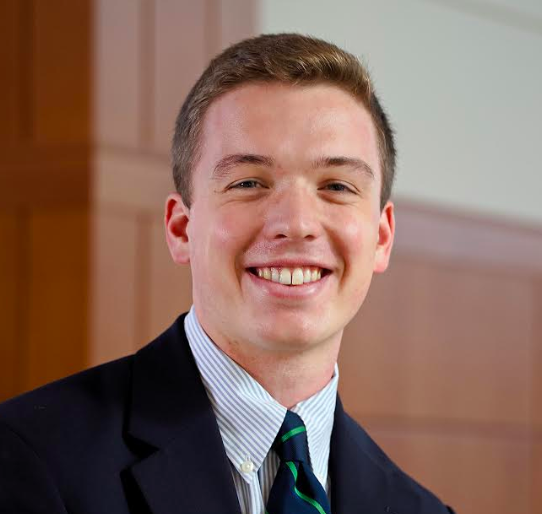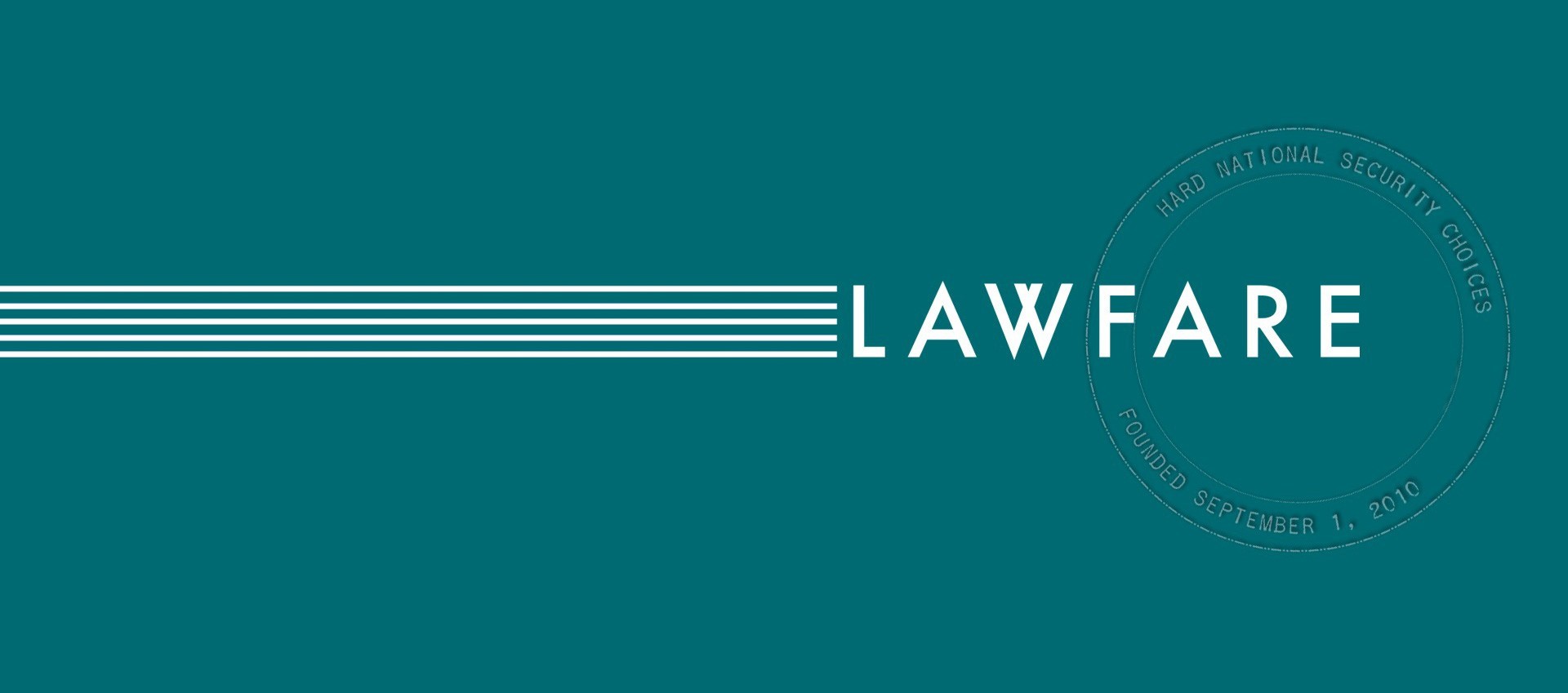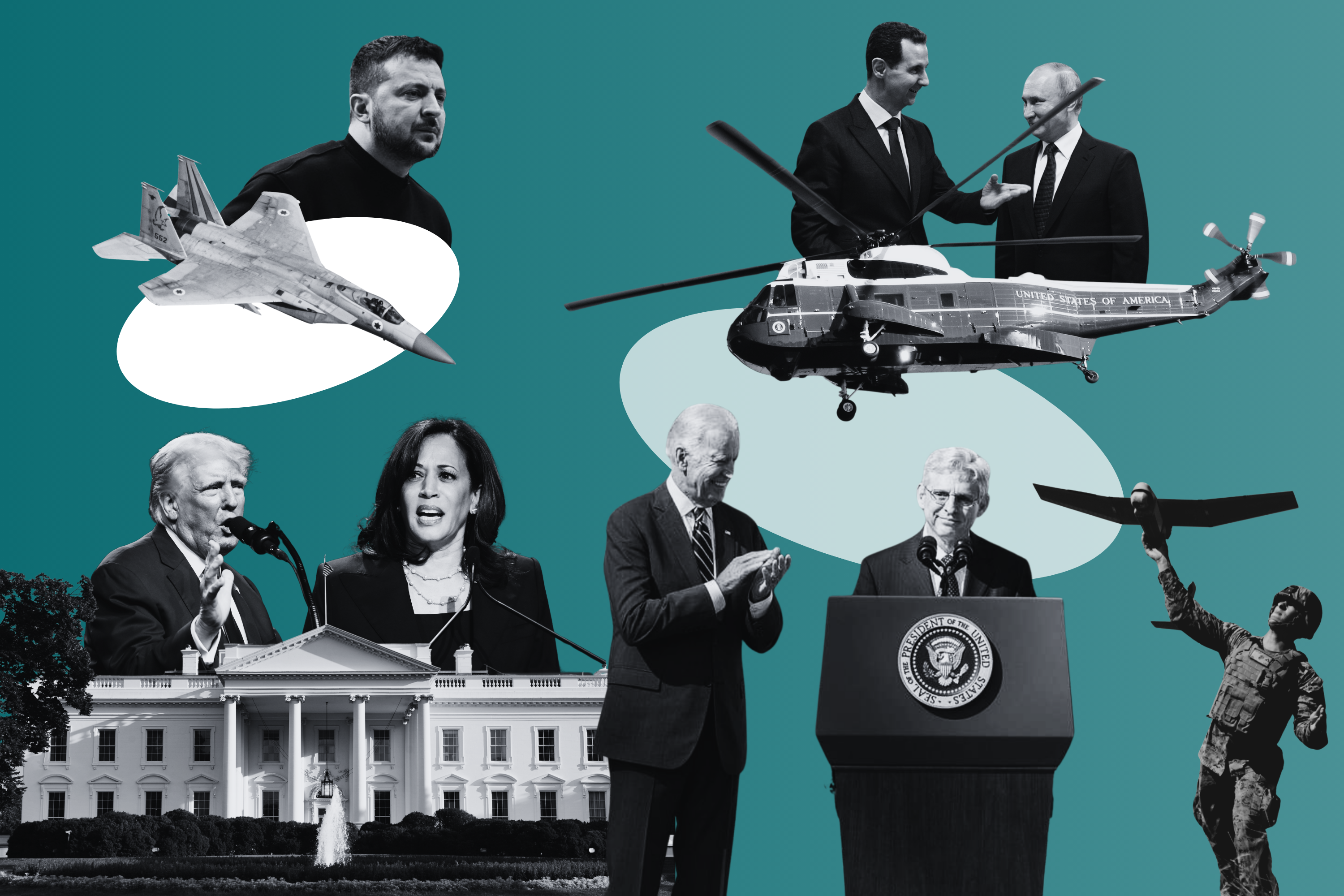The Week That Was: All of Lawfare in One Post
Let’s begin with the special counsel investigation.
Published by The Lawfare Institute
in Cooperation With

Let’s begin with the special counsel investigation.
Following Friday's indictment of 13 Russians and three Russian entities for conspiring to interfere in the U.S. election, the Lawfare team posted a detailed analysis of the indictment. In addition, Matthew Kahn posted the indictment itself; he also shared the livestream of the press conference at which the deputy attorney general announced the charges. Kahn also posted Richard Pinedo’s plea agreement with the special counsel investigation, along with his criminal information and statement of offense.
Kahn also shared a special edition of the Lawfare Podcast, "Mueller Indicts Russian Trolls," in which Benjamin Wittes discusses the new indictments and their implications with David Kris, Paul Rosenzweig and Matt Tait.
Gabriel Schoenfeld explained why Andrew McCarthy’s certainty that President Trump did not obstruct justice is over-confident.
Responding to articles on Lawfare discussing the role that the Foreign Intelligence Surveillance Court (FISC) might play in clearing up the controversy of the Nunes memo, Stewart Baker noted that the FISC has previously invoked its right to punish inadequate or misleading FISA applications.
Baker also shared the Cyberlaw Podcast, in which he discusses FISA applications and the FISC in an interview with Glenn Gerstell, the general counsel of the National Security Agency.
Kahn posted the FISC’s letters to the chairmen of the House intelligence and judiciary committees.
In broader news concerning law enforcement, Susan Landau contended that law enforcement must expand its training and expertise in digital investigations to combat the rise in online crime.
Anne Boustead shared her latest essay in the Aegis Paper Series on the impact of surveillance intermediaries on small and midsize law enforcement agencies.
Benjamin Wittes shared the latest episode of Rational Security: The "Do We Have Clearance, Clarence?" Edition:
Nadiya Kostyuk and Stuart Russell delineated the successes of the U.K.’s Active Cyber Defence program and explained how the program could benefit the U.S.
Evelyn Douek summarized last week’s hearings in Parliament on fake news, during which U.K. parliamentarians questioned representatives from Facebook, Google, Twitter and YouTube.
William Ford shared the livestreams of and prepared testimony from the Senate intelligence committee hearing on worldwide threats and the Senate Armed Services Subcommittee on Cybersecurity hearing on election security. He also posted the Congressional Task Force on Election Security’s latest report and newest legislation, the Election Security Act.
Stewart Baker shared the Cyberlaw Podcast's news roundup:
Fred Cate and Jon Eisenberg highlighted a new report by the National Academies of Sciences, Engineering, and Medicine on the encryption debate.
Robert Chesney announced that U.S. Cyber Command will host its fifth annual legal conference, “Cyberspace Operations in the Gray Zone,” from March 5–8.
In his Middle East Ticker, J. Dana Stuster discussed Israeli airstrikes in Syria, the attack on U.S. troops by Syrian regime forces, Egypt’s new counterterrorism offensive, and Iraq’s effort to raise money to rebuild its devastated infrastructure.
Dror Michman and Yael Mizrahi-Arnaud delved further into Israel’s attack on an Iranian unit in Syria last weekend and explained the incident’s implications. Elena Chachko and Amichai Cohen discussed the international legality of the countries’ actions.
Douglas Ollivant delineated the problems created by corruption in Iraq and explained how to reduce corruption.
Chris Mirasola summarized the legal battle for the release of the Trump administration’s legal justification for U.S. airstrikes in Syria last April. Justin Florence and Allison Murphy argued that the government should release the memo explaining this justification.
William Ford posted the Fourth Circuit’s ruling against President Trump’s travel ban in IRAP v. Trump. Peter Marguiles argued that the Fourth Circuit’s decision demonstrates that those challenging the travel ban face serious obstacles to success at the Supreme Court level.
Robert Chesney argued that captured Islamic State foreign fighters Alexanda Kotey and El Shaffee Elsheikh should be brought to the U.S. to stand trial.
Nora Ellingsen and Benjamin Wittes reported that career officials at the Justice Department did not support President Trump’s false claim that the “vast majority of individuals convicted of terrorism and terrorism-related offense since 9/11 came here from outside of our country” based on documents obtained under the Freedom of Information Act.
In military commissions news, Coleman Saunders summarized the proceedings in the al-Iraqi trial from Jan. 30 to Feb. 4, and Sarah Grant covered the proceedings from Feb. 5-13.
Asher Susser contended that the Israeli-Palestinian conflict is often explained using a selective account of events and facts and specifically took on two recent articles in the New York Review of Books.
Ford shared the livestreams of and prepared testimonies from Wednesday’s House and Senate hearings on foreign policy and national security.
Robert Chesney and Steve Vladeck shared this week's National Security Law Podcast, in which the two discuss, among other things, Rachel Brand’s departure from the Justice Department, military commissions, and the case of two former British nationals who became ISIS fighters.
Megan Reiss discussed Moldova’s new law banning broadcasts from Russian news stations and pondered how the U.S. and its allies can strengthen anti-Russian propaganda campaigns in Eastern Europe.
Masahiro Kurosaki offered four observations regarding a scenario in which North Korea launches an unarmed missile into Japanese sovereign territory as part of a missile test.
Derek Grossman examined whether President Trump is getting the most out of his Daily Brief.
Kahn shared the Lawfare Podcast, a recording of David Frum’s Feb. 7 panel discussion with Elaine Kamarck, Jonathan Rauch, and Benjamin Wittes about his new book “Trumpocracy: The Corruption of the American Public.”
Josh Blackman shared his thoughts on the meaning of judicial resistance in the Trump administration. In a follow-up piece, he argued that recent judicial decisions on Trump administration policy show that the judiciary has determined how to equilibrate between the legal resistance and the president.
Kahn posted the Lawfare Podcast, a recording of Chuck Rosenberg’s talk on value-based leadership to law students at the University of Virginia.
Jeremy Rabkin reviewed Niall Ferguson’s new book, “The Square and the Tower, Networks and Power, From the Freemasons to Facebook.”
Craig Forcese and Kent Roach shared the first article in a series on the powers of the Canadian Security Intelligence Service and possible changes to it.
And that was the week that was.





